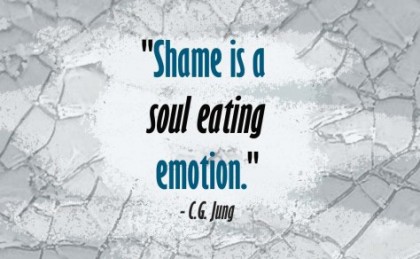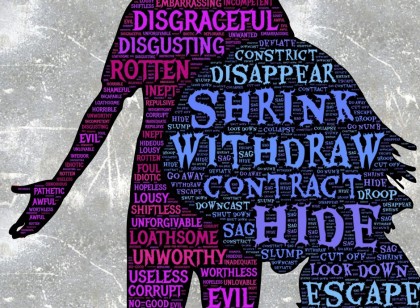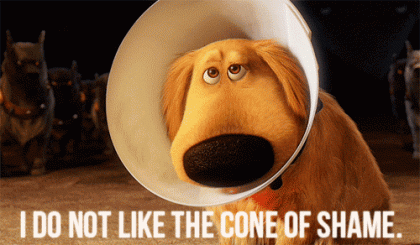Fall Harvest Moon
 Shame. It’s a quiet burning just under the skin, a turning of the inner face away from the self, embarrassed. What have I done? I suppose its power comes in the possibility that the person who acted like this could be the “real” me. And, it doesn’t have to be an egregious act to call it up.
Shame. It’s a quiet burning just under the skin, a turning of the inner face away from the self, embarrassed. What have I done? I suppose its power comes in the possibility that the person who acted like this could be the “real” me. And, it doesn’t have to be an egregious act to call it up.
Example. Mussar says, pay attention to how much space you take up. Do not dominate your environment, for example. Leave plenty of room for the other, for their response, their reaction, their choices. On the other hand, do not shrink into the background. Leave room for yourself, your reaction, your choices. There is no sphere of life where this idea does not apply. Work. Family. Synagogue. Church. Recreation. Community affairs. Politics. All spheres of human interaction.
In mussar each character trait exists in a polarity, say patience-anger or humility-pride. Neither pole is always best, the dynamic of mussar suggests that in certain situations either pole may be appropriate, though the sweet spot is in the balance between them. Patience, for example, should not be allowed to subvert the need to take action. Anger should not be allowed to control or force a response. The key is to know when to be patient, when to allow anger to show. So we try to remain in the middle space, ready to use which trait will produce the most human, most needed act.
 Getting to the point here. I’m a student, probably since my first conscious thought. How the world works fascinates me. History, too. Literature. Art. Religion. Philosophy. Politics. Last night for example, before I went to sleep, I focused on my breath as I often do. I began to wonder, “OK. I know about inspiration, the lungs take in air, blood in the lungs binds the oxygen to the hemoglobin. But what about expiration? How does that work? Where do the exhaust gases, the carbon dioxide, come from? How do they get expelled? Why don’t the two processes interfere with each other?” Still don’t know the answer, btw, but I’m going to ask Kate at breakfast.
Getting to the point here. I’m a student, probably since my first conscious thought. How the world works fascinates me. History, too. Literature. Art. Religion. Philosophy. Politics. Last night for example, before I went to sleep, I focused on my breath as I often do. I began to wonder, “OK. I know about inspiration, the lungs take in air, blood in the lungs binds the oxygen to the hemoglobin. But what about expiration? How does that work? Where do the exhaust gases, the carbon dioxide, come from? How do they get expelled? Why don’t the two processes interfere with each other?” Still don’t know the answer, btw, but I’m going to ask Kate at breakfast.
As a student, I’ve always been rewarded for speaking up in class. Classroom participation, remember that one? At age seventy it’s a long ago embedded part of my behavior. I’m aware I can dominate a class, so I try to be circumspect, not to follow every rabbit down every hole, though the desire to do so is always there. Where do the exhaust gases come from? Why does god put the angel with the flaming sword at the gates of Eden? It’s the way my mind works.
Yesterday in mussar Rabbi Jamie asked us to be aware of those who don’t speak or speak less often. To be sensitive to what they might be wondering, sensing, have to offer. Oh. Oops. He means me, doesn’t he? Well, probably, but also the others who tend to speak up frequently. Still, even the possibility, the likelihood, that part of his comment was aimed at me, made me go pink around the ears.
 I shrank back in my chair, at least metaphorically, vowing, again, to keep my hand down. To keep that curiosity publically in check. To filter my thoughts, about whether they need to be expressed. Hard for me. I’m eager when it comes to learning and part of learning is bouncing ideas off each other. But there’s that balance idea, the sweet spot between curiosity and taking up too much space, the need to honor the contributions and questions of others, to not privilege my own at other’s expense.
I shrank back in my chair, at least metaphorically, vowing, again, to keep my hand down. To keep that curiosity publically in check. To filter my thoughts, about whether they need to be expressed. Hard for me. I’m eager when it comes to learning and part of learning is bouncing ideas off each other. But there’s that balance idea, the sweet spot between curiosity and taking up too much space, the need to honor the contributions and questions of others, to not privilege my own at other’s expense.
Letting shame dominate my response, however, is not helpful. Shame can lead to exclusion, to fear of being in a certain situation, in a certain group of people. And, paradoxically, it can also lead to an inflated idea of a particular moment’s meaning. Oh, I’m so bad that I can’t show my face here again. No. Learn the lesson. Keep it available as a guide, as a lesson, not as a definer of the Self. We are all more than even our worst mistakes and shame alerts us, usually, to the slighter mistakes, not the worst ones.
I’m talking to myself here. Writing does that for me. Gets me down to the root of an experience. So, here’s what I’m saying. Yes,Charles, modulate participation, but don’t go quiet. Yes, accept the observation as relevant, but not as a diminishment.
